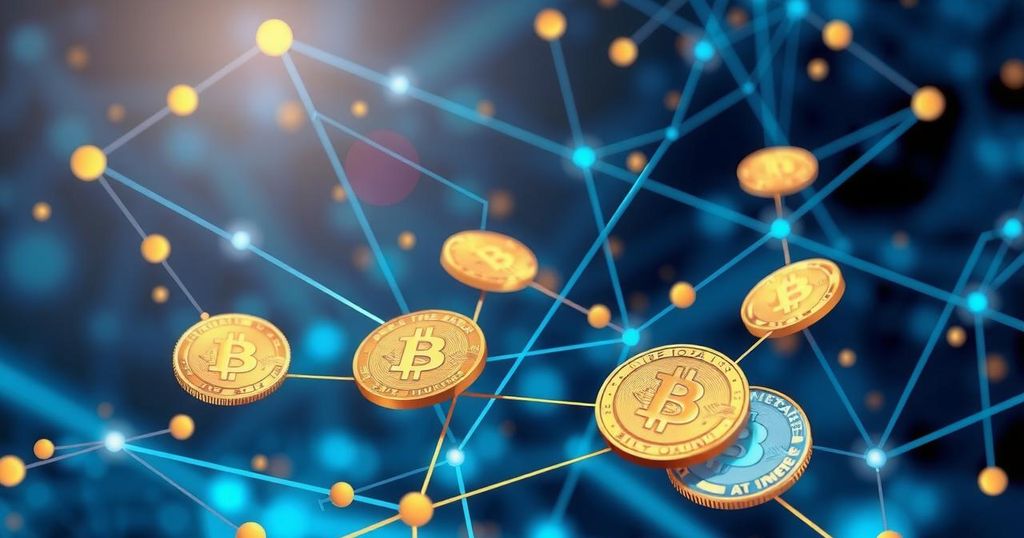Assessing Trump’s Impact on Cryptocurrency in His First 100 Days
In Trump’s first 100 days of presidency, cryptocurrencies particularly bitcoin (BTC) have seen a decline, down about 6%. His administration has launched initiatives like a Strategic Bitcoin Reserve and made some notable appointments supportive of crypto. However, key legislation has not been passed yet. Allegations of trading regulations were eased, but speculation remains about the effectiveness of his policies. With bitcoin’s performance trailing behind that of Biden’s tenure, the crypto community remains on alert.
As we hit the 100-day mark into Donald Trump’s second presidency, it’s time to look at how his actions have impacted the cryptocurrency space. While the former president has professed his support for digital assets, it’s unclear whether his policies have helped or hindered their growth. Crypto enthusiasts are left wondering: Is the attention beneficial or does it come with unwanted scrutiny?
Despite Trump’s proclamations in favour of cryptocurrency, bitcoin (BTC) hasn’t performed well since he took office again, plunging about 6% since he was sworn in. By contrast, during President Biden’s initial 100 days, bitcoin actually appreciated by over 50%, even as many in the industry felt targeted by his administration. To put things in perspective, during Trump’s first term, he viewed BTC as a “scam” yet it surged nearly 50% in its first 100 days.
One initiative under Trump’s current administration is the establishment of a federal framework for cryptocurrencies. He signed an executive order that set up a “Strategic Bitcoin Reserve,” intended to manage the BTC already possessed by the government, much of which is tied up in legal cases. Alongside that, a National Digital Asset Stockpile was established, but it remains unclear if the government genuinely intends to increase its bitcoin reserves—or if it plans to divest some assets from this stockpile.
Interestingly, Trump’s administration even toyed with the idea of selling parts of the United States’ gold reserves to fund bitcoin purchases. This raises eyebrows—who knew bitcoin would be entangled with historical assets like gold?
Meanwhile, Trump has fulfilled some campaign pledges to the crypto community, notably the pardon of Ross Ulbricht, the notorious founder of Silk Road. However, other commitments, like producing all bitcoin domestically, seem unfeasible, not to mention the issue of the tariffs that contradict those ambitions.
On the nomination front, Trump has appointed figures who have their feet firmly planted in the crypto world. For example, Howard Lutnick, the commerce secretary, previously led a firm managing reserves for Tether, the largest stablecoin. Also noteworthy is Paul Atkins, recently named head of the SEC, who believes that previous attempts to regulate crypto stifled innovation.
Additionally, a press event saw administration advisor David Sacks alongside Republican legislators declare that they aimed to get a stablecoin bill and a market structure bill by day 100. But as of now, neither of these has been passed, and delays by Senator Tim Scott have put a damper on hopes.
Even without fresh regulations, agencies like the SEC and CFTC have begun to dismantle enforcement groups focusing on cryptocurrency. Some regulations have also been rescinded, including accounting guidelines that were perceived as hurdles for the crypto business.
In terms of business ventures, Trump’s ties to crypto projects are unabated. World Liberty Financial, where Trump has ties, has talks of launching an AAVE instance and possibly a stablecoin, though developments have stalled. Interestingly, Trump also introduced a memecoin, $TRUMP, which seems to create an interesting opportunity for investors to interact more closely with him, especially those who make sizeable investments.
So, as the first 100 days with Trump at the helm of the White House wraps up, the crypto scene remains a mixed bag. There’s optimism in some quarters, but also a sense of caution as to where his administration will take the industry next. It’s definitely a situation worth keeping a close eye on.




Post Comment